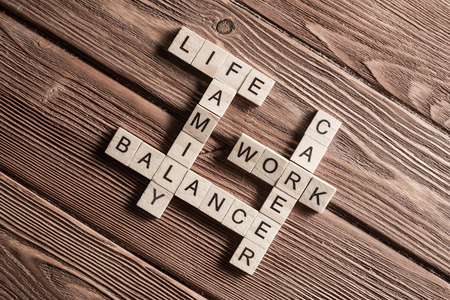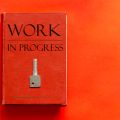1. Understanding American Hustle Culture
In the United States, the concept of “hustle culture” has become deeply embedded in both professional and personal spheres. Stemming from the traditional “American Dream,” hustle culture emphasizes relentless hard work, long hours, and a constant push for achievement as the primary paths to success. Its origins can be traced back to the post-war economic boom, where stories of self-made entrepreneurs and innovators became cultural icons. Over time, this mindset evolved alongside technological advancements and the rise of social media, which often glorifies busyness and productivity as measures of self-worth. Today, hustle culture shapes how many Americans perceive their careers—valuing overachievement, multitasking, and an always-on attitude. This pervasive belief system often equates personal value with professional output, making it challenging to prioritize rest or personal fulfillment without feeling guilty or unproductive. As a result, hustle culture significantly influences not just individual work habits but also collective attitudes toward what it means to be successful in America.
2. Work-Life Balance: The American Ideal vs. Reality
Work-life balance is often portrayed as a core value in American culture, with countless articles, podcasts, and company mission statements promising the possibility of “having it all.” However, the actual experiences within many American workplaces tell a different story. On one hand, employees are encouraged to prioritize self-care, set boundaries, and seek fulfillment outside of work. On the other hand, the relentless pressure of hustle culture—characterized by long hours, constant connectivity, and glorifying busyness—makes achieving true work-life balance elusive for many.
The Ideal vs. The Day-to-Day Experience
| Aspect | The Ideal | The Reality |
|---|---|---|
| Work Hours | 8-hour workdays, flexible schedules | Frequent overtime, emails after hours |
| Boundaries | Clear separation between work and personal life | Blurred lines due to remote work and mobile devices |
| Company Support | Robust wellness programs and PTO policies | PTO discouraged or unused due to workload & expectations |
Cultural Expectations and Unspoken Norms
Despite progressive HR policies on paper, American professionals often internalize the idea that career success requires personal sacrifice. Many feel compelled to be “always on,” responding to Slack messages late at night or skipping vacations to stay competitive. These unspoken norms can lead to burnout and undermine the very concept of work-life balance that organizations claim to support.
Navigating the Gap
To bridge the gap between the ideal and reality, both individuals and organizations need to rethink what true balance looks like in practice. This involves not just adopting flexible work arrangements but also challenging the deeper cultural narratives that equate worth with productivity. Recognizing these contradictions is the first step toward building a healthier workplace dynamic where people can truly thrive inside and outside the office.

3. The Benefits and Drawbacks of the Hustle Mentality
Hustle culture has become synonymous with the American dream, promising success through hard work, relentless ambition, and an unwavering drive to achieve more. This mentality can spark impressive innovation and personal growth. Many startups and tech giants were built by individuals who embraced long hours, took bold risks, and remained dedicated to their goals. The hustle mindset often fosters resilience, adaptability, and a willingness to learn new skills rapidly—traits that are highly valued in competitive industries. For some, this fast-paced environment provides a sense of purpose and accomplishment that fuels further motivation.
However, the relentless pursuit of achievement comes with significant drawbacks. The glorification of always being “on the grind” often leads to chronic stress and burnout, making it difficult to sustain high performance over time. Personal relationships and self-care frequently take a back seat as work consumes evenings, weekends, and even vacations. Over time, this imbalance can erode both mental and physical health, leaving individuals feeling isolated or unfulfilled despite professional success. While hustle culture may drive progress and economic growth, it also poses real challenges to achieving true work-life balance—a goal that many Americans now recognize as essential for long-term happiness and well-being.
Cultural Perceptions of Success and Self-Worth
In the context of American hustle culture, success is often measured by one’s professional achievements, financial status, and visible productivity. These values are deeply embedded in the American psyche, shaping not only how individuals pursue their careers but also how they perceive themselves and others. The phrase “living to work” rather than “working to live” captures the essence of this mindset, where personal worth is frequently evaluated based on job titles, income levels, and outward symbols of accomplishment.
This cultural narrative creates a powerful link between identity and career milestones. From a young age, Americans are exposed to stories that celebrate self-made entrepreneurs, relentless innovators, and those who “make it” against all odds. As a result, many people internalize the idea that their value is directly tied to their ability to succeed professionally. This can lead to prioritizing work above all else—even at the expense of health, relationships, or genuine happiness.
Below is a comparison highlighting how American hustle culture influences perceptions of success compared to alternative perspectives:
Aspect |
American Hustle Culture |
Alternative Perspectives |
|---|---|---|
Definition of Success |
Primarily career achievement and financial gain | Work-life harmony, personal fulfillment, well-being |
Self-Worth Measurement |
Tied to job title, promotions, and salary | Balanced across multiple life domains (family, hobbies, community) |
Cultural Messaging |
“You are what you do” | “You are more than your job” |
Personal Priorities |
Work often comes first; leisure is secondary or earned | Leisure and relationships are integral, not optional |
The intertwining of career success with self-worth can make it challenging for individuals to establish boundaries or pursue a truly balanced lifestyle. By recognizing these cultural patterns, it becomes possible to question inherited beliefs and consciously redefine what success means on a personal level—opening the door for more sustainable growth and authentic well-being.
5. Redefining Balance for a Healthier Work Culture
The American hustle culture has long glorified the grind, but new perspectives are reshaping what it means to truly thrive at work and in life. As conversations about burnout and mental health become mainstream, both employees and employers are reevaluating their priorities.
Remote Work and Flexibility: The New Norm
One of the most significant shifts is the widespread adoption of remote work. Flexible schedules and hybrid models allow professionals to better align their job responsibilities with personal needs, from managing family commitments to pursuing hobbies. This flexibility empowers individuals to define productivity on their own terms, rather than by traditional office hours.
Mental Health Takes Center Stage
Acknowledging the toll of constant hustle, more companies are investing in employee well-being initiatives. Mental health days, access to counseling services, and open discussions about stress have moved from taboo topics to essential aspects of workplace culture. Prioritizing mental health is not just a trend—its becoming a core value for organizations that want to attract and retain top talent.
Setting Boundaries and Embracing Downtime
The new work-life balance movement encourages setting clear boundaries between professional and personal time. This includes disconnecting after hours, taking real vacations without guilt, and learning to say no when workloads become unsustainable. These strategies help prevent burnout and foster sustainable growth for both individuals and teams.
Cultivating Self-Growth Within the Workplace
A healthier work culture also values continuous self-improvement, not just in job skills but in emotional intelligence and resilience. Employers are supporting this through mentorship programs, personal development workshops, and growth-focused feedback sessions. By redefining success as holistic well-being rather than nonstop hustling, American workplaces are slowly evolving into environments where true balance—and lasting fulfillment—are possible.


